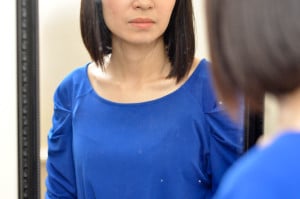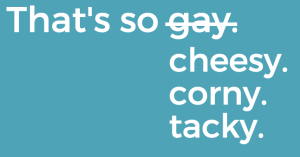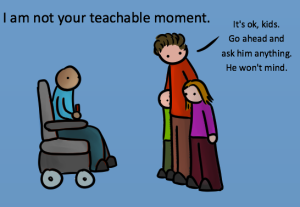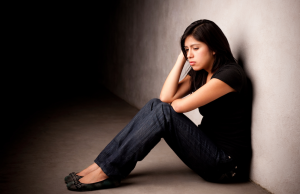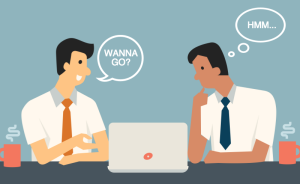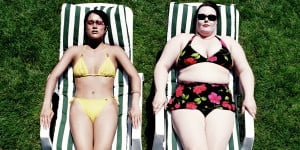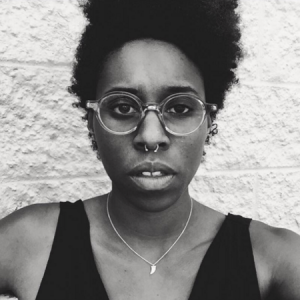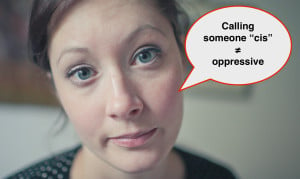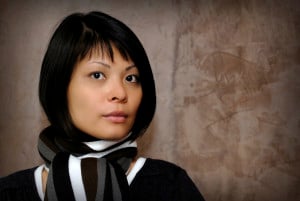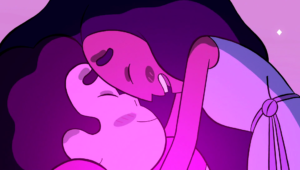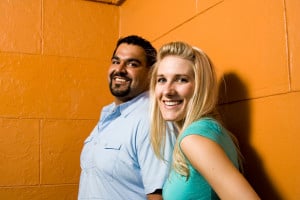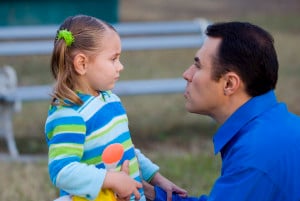When I began writing about being a fat acceptance ally, I chose to write from the uncomplicated position of a thin ally. I approached it this way because I believe that, politically, it’s most accurate to describe myself as a “thin person.”
But that is not actually my truth, nor is it my experience.
I am fat, I have been fat all my life, and a lot of the shitty things that happen to fat people have happened to me.
When someone says “average-sized person,” I don’t picture myself, but when people say “fat person,” I do.
A fat woman read my initial article, and she felt uncomfortable with some of the ways I talked about trying to be a good ally to fat people. She pointed out how my desire to protect fat people could come across as patronizing or othering when coming from a thin person.
She cautioned me to be careful about how I was expressing my allyship.
I thought a lot about what she said, and how it was not only disingenuous, but also misleading to write about fatness the way I was.
So I decided to “come out” as fat. As chubby. As someone whose body is not considered a “normal” weight and is therefore subject to scrutiny.
In response to her, I explained my complicated position with my own fat body, and she suggested that I write that story instead. I agreed.
Although this is the most personal thing I think I’ve ever written, I wanted to write this because I believe that everyone needs to be a part of this movement. Thin people, fat people, and in-betweeners. People who are at peace with their bodies, and people who hate their bodies.
We all need to be allies and I hope I can, especially, inspire people who don’t think they can fight for fat acceptance until they love their own bodies. I, too, am trying to do both. It is possible, and it is necessary.
I’ve decided to share a little bit of my pain to explain where I’m coming from as a writer – not as a thin person who wants to work on their fat bias and help others do so as well, but as someone who has a long history of pain and self-hatred related to their fat body, as someone who is working on both internal and external bias while simultaneously acknowledging the privilege I have as a smaller fat person.
It’s very important to me that bigger fat people feel good about how I write about fat positivity. When I engage in anti-oppression work, I know I’m never going to be perfect, and that the best thing I can do is listen, really listen, when someone brave and generous enough to educate me speaks.
I have experienced the insidious, overwhelming voice of bias and bigotry, and my duty as a social justice warrior is to crush that voice, even when it comes, unintentionally, from me.
Being an ally to other people has been easier than being an ally to myself, but both are necessary. My journey toward fat activism/allyship for others has been much speedier than my journey to accepting myself, but my activism is not complete if I leave even one fat person out – even if that fat person is me.
Healing From the Anti-Fat Messages and Microaggressions I Received from My Family
My father was fat, and I was a fat kid.
My mother spent a considerable amount of energy worrying about my weight and, although she was never cruel, she made it clear that my body was not appropriate.
I remember my mom telling me I needed to “eat healthier” because I was gaining weight. I must have been around ten.
She then asked me whether I wanted pizza or Chinese takeout for dinner, and I chose pizza. She became very angry with me and yelled at me for choosing the fattier choice.
My stepmother was not so kind. She ridiculed my father constantly, me frequently and created an environment in which I knew that my thin siblings were considered better looking and more virtuous than me.
Consequently, I grew up with my morality tied to food. If I ate too much, I felt like a sinner. I felt like my fat body did not deserve nice things.
I have never been comfortable, for example, having a “spa day” (although currently that’s because of my gender identity) because I didn’t believe I deserved to treat my body well until it was the right shape, the right weight.
When my dad developed diabetes, she made sure we all knew that it was because he was fat, and it was very clear to me that I was being lumped in with the “willpower-less bad people who get fat and sick” category.
I don’t know for sure when my current mind-set about health and fat began to develop. Like many people, I’ve grown past the mandates of my parents in fits and starts over the years.
Central to my paradigm shift, though, was my introduction to the concept of whole foods and going to school in a place where fat positivity was present, if faint, within the sizable queer community.
I felt better about my body, and treating my body in a way that felt good, when I was in a place where my body and my existence felt welcomed and loved – not chastised as it did at home.
When I left college, I was re-introduced into a culture that was less positive about fat bodies, especially female fat bodies, and luckily, being a part of a strong queer community for four years allowed me to begin to fight those messages instead of re-internalizing them.
Since I graduated, fat positivity has been a part of the work I do, whether it’s writing, teaching, or simply vocally advocating for body positivity.
How I Learned to Negotiate the Ways Fatness Compounded My Gender and Sexuality
I could rarely find clothes that fit me well as a kid (being poor didn’t help), and it’s even worse now that I have a masculine presentation and need to figure out how to buy men’s jeans that accommodate a fat hip and belly area.
I’ve been told over and over again that my health problems are caused by my weight, I have had next to no positive media representation to look up to (because the media is not exactly cool with fat masculine of center people/lesbians), and I couldn’t have sex with the lights on until I was 24.
But I am very, very lucky that I am queer and able to live within a queer community large enough to have a distinct culture.
The queer community, or at least some pockets of the queer community, have different beauty standards. I dated women who found fat, transmasculine bodies attractive. I experimented with my appearance and found looks that worked for me.
And I began to pay attention to what I was really attracted to.
Like most of my feminist awakenings, combating my own fatphobia started off as a personal, almost selfish epiphany.
I realized I was attracted to girls with bellies and thick thighs. I realized that who I found most beautiful were women who society would probably deem fat.
Then the conversation started by my dick moved to my brain – if I found women outside conventional beauty standards beautiful, how useful were conventional beauty standards?
I began to pay attention to the fat people in my social circle and their romantic relationships. No one was pretending to love the fat people they were dating. They were attracted to them and found them lovable and desirable.
And then I started to get angry.
I got angry at the world for painting an entire, huge, huge section of humanity as undesirable.
What It Means to Be a Thin-Fat Person and Have Thin Privilege in a Fatphobic Society
I’ve been able to intellectually grasp that people could feel comfortable with their bodies at any size, but I thought that I would only ever be comfortable with my body if I was thin.
Now I am thin, or at least more thin than I was, and I am not comfortable.
I am pleased with the convenience of having a thinner body – like having clothes that fit well – but I don’t feel better about myself.
I don’t know what’s a better indicator that our culture’s messages about size are more fucked up than that: I am happy to be thin because it’s more convenient, not because I am happy with being thin.
Throughout my struggles with my own weight and self-esteem, my stalwart feminism has led me to a solid intellectual stance on fat shaming.
That is, intellectually (and emotionally for anyone other than myself), I reject it. I find fat people beautiful. I fight for fat media representation. I shut down fat shaming when it occurs in front of me.
I am most successful in fat positivity allyship when I approach my allyship from two perspectives – that of the fat person who empathizes with the struggles of being fat in our world, and the thin person who can still feel the internal scars being treated as fat left, but who knows I have a platform as a thinner person.
3 Strategies I’ve Picked Up for Learning, Healing, and Practicing Allyship
1. Amplify the voices of people who are more hurt by fatphobia than I am
I believe it’s my place to let bigger people in the fat acceptance movement speak over/instead of me, and that it’s my duty to amplify their voices.
Just as I believe that as a trans man I need to amplify the voices of trans women, it is my duty and my privilege to let bigger people speak as members of the fat acceptance community.
Bigger fat people experience far more challenges than smaller fat people, so they have more authority on what the more pressing concerns we need to address are.
2. Listen to bigger fat people and do my best to help them address their concerns
I can, and do, have baggage and a ton of emotions from my own experiences with fatphobia, but it’s my responsibility to deal with those feelings on my own and to help my more marginalized peers address obstacles to fat acceptance.
Marginalized people spend their lives dealing with discrimination and injustice.
The least I can do as an ally is to promise to listen and support their efforts to advocate for their rights and dignity. Being heard is the first step towards feeling whole – and the first step towards action to restore justice.
3. Anticipate the needs of fat people in my life, do my best to meet them, and fix it when I fall short
For example, I’m teaching a wellness self-management class, and when I went to check out the room I’d be holding the class in, I made sure there were comfortable chairs with no arms so anyone fat in my class wouldn’t have to wrestle with uncomfortable chair arms.
When my participants pointed out that I’d forgotten to make an avenue so people could easily get in and out of the room and access the table in the back with the produce and recipe cards, I listened. I fixed it, and I’ve made sure the room is set up correctly every time since then.
It’s important to do things like this because if you make a space unavailable or unwelcoming to a group of people, they won’t show up. If you’re committed to intersectionality, that means making sure everyone wants to and can show up.
***
Writing this has been eye-opening for me.
I have always been the kind of feminist who walks the walk first and hopes that the truths I accept about other people (that their bodies are solely theirs, that neurodiversity is valid a way of being, that ability to participate in capitalist work does not define one’s worth as a person and other feminist tenets) will eventually resonate with me about my own marginalized body.
I never expected to have to explain, since it has been such a big part of my mind for as long as I remember, that I am a member of the community that I’m trying to support.
I’m glad I’m fighting this fight, both for myself, and because I shouldn’t have to experience the same kind of discrimination as someone to want to make the world a just place for them to exist.
I hope anyone reading this takes away two messages: that fat acceptance is a vital and powerful movement that we all – fat or thin – should be a part of, and that you do not have to have your own relationship with your body perfectly sorted out in order to be a good activist-ally to your fat siblings.
[do_widget id=”text-101″]
Logan Howlett was raised in the middle of The Great Swamp and spent her formative years reading everything she could get her hands on, sneaking over to other kids’ houses to watch TV, and memorizing the words to every Dido song. While at college, she worked as a Digital Music Monitor, shaggy dog walker, and as a community educator on transgender rights. Now she pays bills professionally and makes coffee on her own schedule.
Search our 3000+ articles!
Read our articles about:
Our online racial justice training
Used by hundreds of universities, non-profits, and businesses.
Click to learn more


